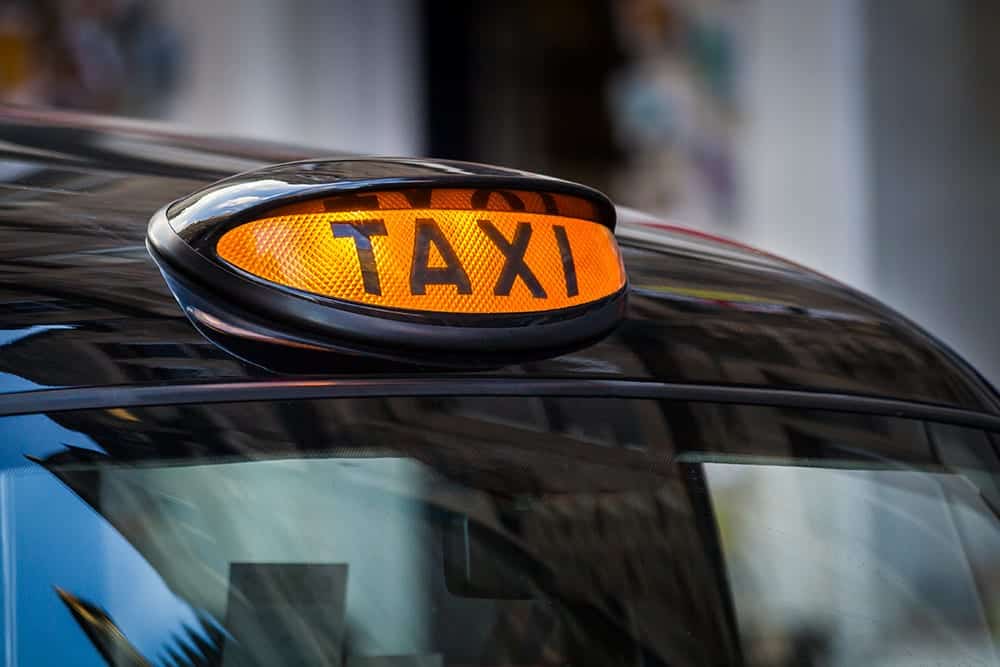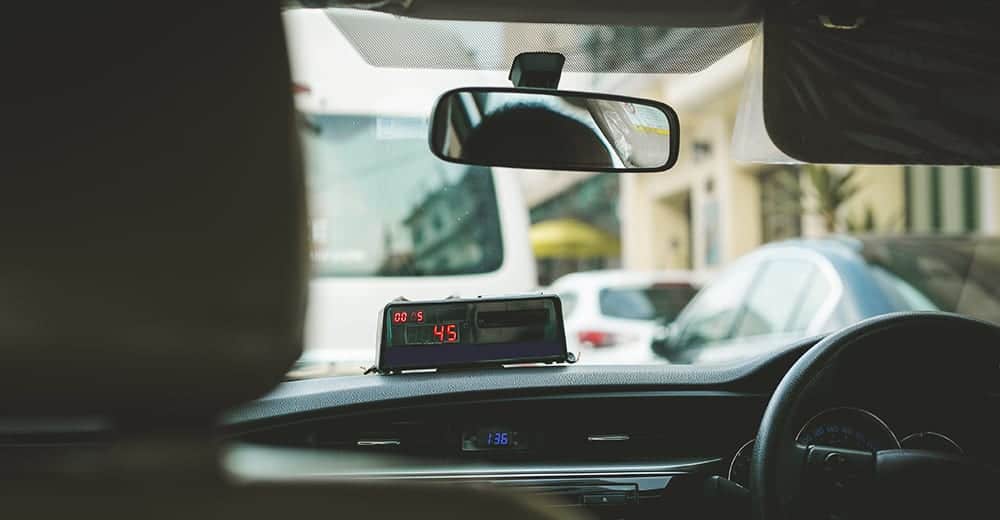Taxi Insurance – a quick guide
Taxi insurance is typically more expensive than normal car insurance, but when your livelihood depends on your vehicle being on the road, it can also be worth every penny.
This quick guide will help you understand the various options available when taking out taxi insurance and which type of policy is likely to be most suited to your needs.

Private hire vs public hire policies
There are 2 types of taxi insurance; Private Hire and Public Hire and it’s pretty easy to assess which one you need.
This classification corresponds to the type of licence you have been issued by your local authority.
The reason for this distinction comes down to risk. There is a greater risk associated with collecting members of the public off the street, with no traceable address or telephone number, than in collecting pre-arranged fares. A public hire policy can be more expensive, but this type of licence can increase your ability to earn.
Why is taxi insurance so expensive?
There’s no getting away from it, taxi insurance is a lot more expensive than standard vehicle insurance, sometimes coming in at 3 or 4 times the price. 4 good reasons for this are:
Increased mileage
Driving in built-up and congested areas
Operating during unsocial hours
Passenger liability
Which type of insurance policy do you need?
As with domestic vehicle insurance, not all taxi insurance policies are made equal. This is a good thing, because it enables you to purchase only the level of cover you require. There are 3 specific types of policy, getting progressively more expensive with the more flexibility and cover they provide.
The cheapest option, with the lowest cover
Perfect for one-person operators
Preferable for shared vehicles and taxi companies
Once you have decided between public or private hire, and on the type of policy best suited to your business, the level of cover you require is the same as when insuring a standard vehicle e.g. fully comprehensive, fire and theft, third party etc.
Other things to look out for
If you use your taxi for personal use, it is important to check that your policy includes personal use cover.
Other points to look for when reviewing your policy wording include restrictions to mileage applied by your insurer, or a limit to the hours you can work. Insurers can sometimes include limitations to mileage or hours in order to reduce risk. This can result in lower premiums however, you need to be sure that your working patterns do not infringe on these terms.
Personal use
Mileage restrictions
Limit on hours worked

Should you include public liability cover?
Public Liability cover is not a legal requirement for taxi operators, but it is a good idea when dealing with the public. Although passenger liability usually comes as standard when you take out taxi insurance, public liability is often an optional extra. Many insurers recommend taking this option, especially since statistically a significantly high number of road traffic accidents involve taxis, simply because they spend more time on the road.
Taxi Insurance FAQs
This very much depends on the insurer. Some do accept no claims bonus from domestic vehicle policies, others may take them into consideration in conjunction with other offers.
Whilst no claims bonus accrued on taxi policies are transferable to other taxi policies, be aware of ‘change of use’ when switching between domestic and taxi policies which could affect your no claims.
That’s up to you
There are a lot of options you can choose in addition to your standard policy. These include the usual options that are offered with domestic vehicle insurance, such as breakdown cover, windscreen repair and legal cover, as well as options more relevant to taxis for example; loss of earnings, loss of licence and replacement vehicle.
It is worth checking your policy and discussing these options with your insurer, especially when time spent off the road can have serious implications to your livelihood.
Possibly. Adding additional surveillance technology to your taxi can help to reduce risk and goes some way towards reassuring insurance providers, although there is no guarantee that these devices will affect your premiums.
CCTV
The addition of CCTV is known to be effective as a deterrent against theft, vandalism and aggressive behaviour. It can also reduce the risk of bogus third-party claims in the event of an accident.
Black box or ‘telematics’
Many insurers offer cheaper premiums to drivers with a black box fitted, since this allows them to record driving habits and tailor their premiums as a result.
Probably not
Insurers often determine your suitability for cover based on a number of factors, including how long you’ve lived in the UK, when you passed your driving test and the number of points on your licence. Variables differ between insurers, but it is highly unlikely you could get cover for a taxi within a year of passing your driving test, sometimes within 3 years of passing. If you do find someone willing to cover you shortly after getting your driving licence, the chances are the premiums will be prohibitively expensive.
Typically, yes.
Some specialist insurers will offer temporary taxi insurance policies. Typically, this is not a very cost-effective option, however temporary policies can be useful if you require cover for a limited period due to holidays or retirement. It is also sensible if you are operating on a temporary licence and are deciding whether to commit to the profession full time.
Yes
Uber and other ride-sharing services are essentially private hire and as such require private hire policy. Read more about Uber insurance
Usually this depends on who owns the vehicle.
If you are working on a self-employed contractor basis and you own the taxi, then taxi insurance is usually your responsibility. If you are officially employed by a taxi company and driving their cars, then chances are they will insure their own vehicles.
Generally speaking, if you get a quote three to four weeks before you need your policy to start, you’ll be offered the best price. Leaving it till the last minute often results in insurers hiking up the premium, as you’ve got less time to shop around for a better quote. Strangely though, applying too soon could have the same result! 3- 4 weeks falls neatly between the zones of ‘too keen’ and ‘desperate’. Remember, insurers often guarantee their quote for a minimum period (sometimes 30 days), so even if you don’t buy the policy until the day before it is required, make sure you get a quote ahead of time.

